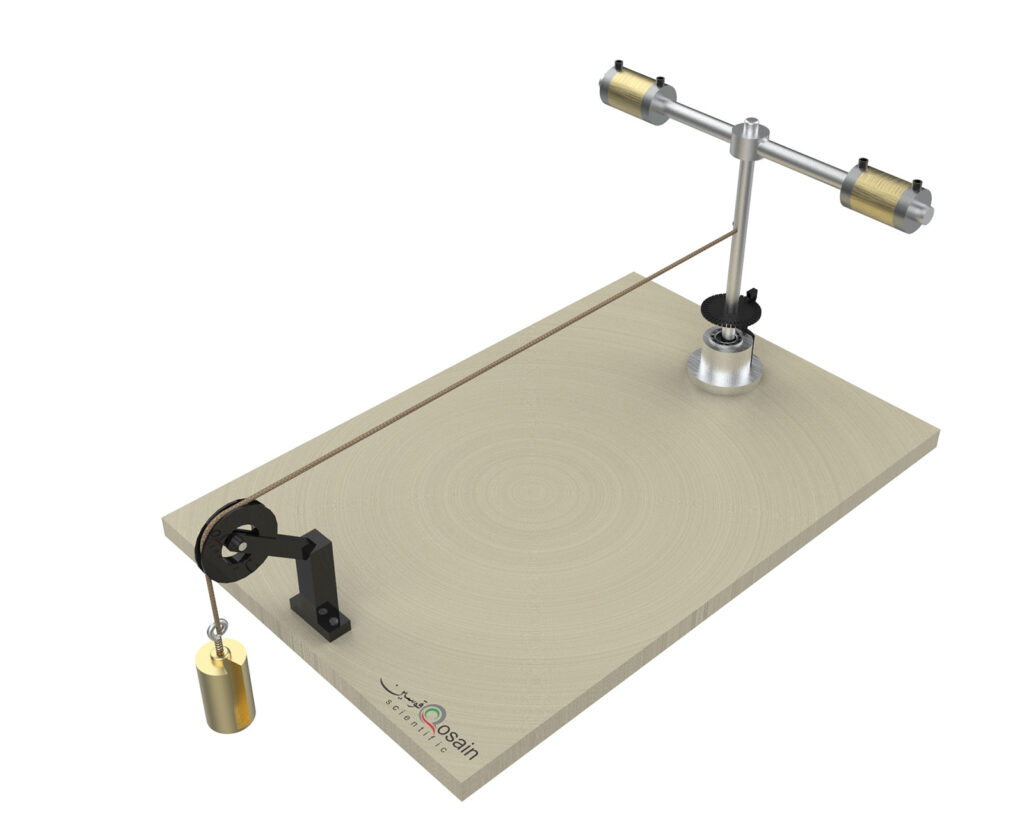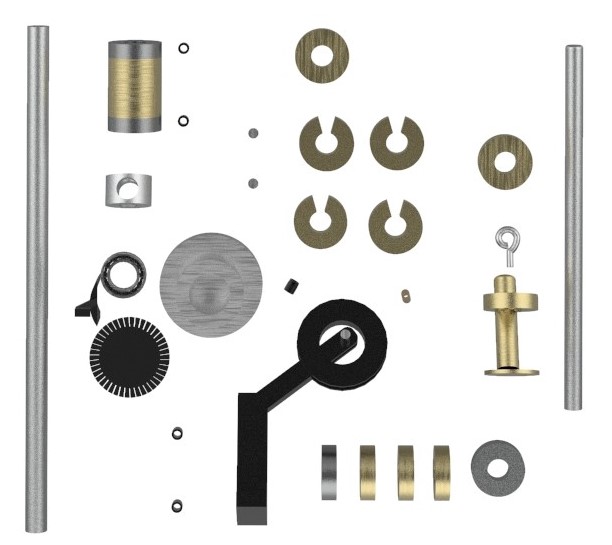Rotational Mechanics with a PhysGate
This experiment helps explore concepts in Rotational Mechanics such as angular momentum, angular velocity, angular acceleration, torque and rotational friction. Conservation of energy can also be investigated. Suitable for undergraduate physics laboratories.
Overview
The Experiment
- Dynamics of Rotational Mechanics.
- Frictional loss in Rotational Mechanics.
- Hands-on practice with PhysGate and PhysLogger.
- Observe how torque produces angular acceleration.
- Graphical depiction for differentiation and integration.
- Linear velocity, angular velocity, and the moment of inertia.
How does it work?
By measuring the angular velocity ω of the assembly, the experiment aims to understand how in rotation, the motion is affected by frictional torque. A vertically falling mass is used to apply a known torque on the axle, thereby rotating the horizontal shafts and a circular disc attached to it. The mass is connected to a string and is hanged freely over a pully, while the other end of the string is firmly attached to the axle.
Initially, the string is wrapped around the axle to bring the hanging mass to its highest position. When released, the mass descends while rotating the axle. On reaching its lowermost position, the mass bounces up again, this time wrapping the thread in the opposite direction. In this manner, several wrapping unwrapping cycles are observed before the mass comes to rest at its lowest position. This bouncing of the mass is measured, and the energy lost per bounce and energy lost per single revolution of the axle is determined.
The disc rotating with the axle has a series of equidistant and identical spokes. These spokes intervene in the sensitive area of a PhysGate, creating a signal that is fed into the computer and analyzed. Using the quantities obtained from the data, the horizontal displacement of the mass and the revolutions of the axles are found. These are then used to correlate the energy lost to the angular velocity.
Major parts included
- Pully
- String
- PhysGate
- PhysLogger
- Wooden base
- Slotted weights
- Rotating assembly
- Extra masses for the rotating rod


